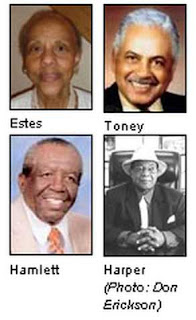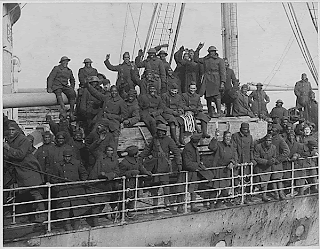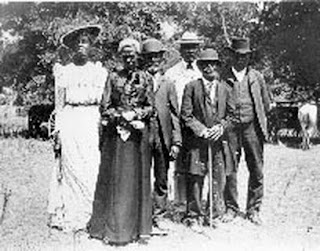LOS ANGELES - Despite passage earlier this year of U.S. health care reform, David G. Satcher, the former U.S. Surgeon General, urged students graduating from Charles Drew University of Medicine and Science on Saturday to figure out how the American health system can be improved.
Dr. Satcher applauded President Barack Obama for turning universal health care into law, but told the students “this is no time to stop dreaming” about how to elevate health care. He believes the current climate remains the best chance in this century or the last to “make health care better in this country.”
“It’s up to us to make sure the system is reformed in the right manner,” he told an estimated crowd of 1,500 people. Dr. Satcher cited support for creating more primary care doctors, as well as advocating for more preventive care while promoting community health.
Medicare spends the lion’s share of its budget on treating chronic diseases, but more effort should be placed on prevention, said Dr. Satcher, 69.

Satcher to Graduates: “Dream About the Future of Health Care” | As an example, he said that shortly after graduating from medical school in 1970, he said 10% of the U.S. population was obese. By 2001, he said the number had ballooned to 30%, creating chronic disease such as diabetes and high blood pressure.
Moreover, he said that roughly 50 million people in the U.S. remain uninsured, he said, |
sometimes after being dropped by insurers because the patient’s health problems were deemed too costly. “You can change that,” he said.
“You can continue to dream about the future of health care in this country, and the way it needs to be and that in dreaming, you will continue to work to make it what it should be.”
The speech represented a return to Satcher’s roots. He served as interim dean from 1977 to 1979 at what was then known as Charles R. Drew Postgraduate Medical School, created after the Watts Rebellion in 1965 to train minority physicians in a community that demanded better health care.
Dr. Satcher left to chair a department at Morehouse College School of Medicine until the early 1980s and became president of Meharry Medical College in Nashville. He was chosen in 1993 to head up the Centers for Disease Control and Prevention in Atlanta. Then, he served from 1998 to 2002 as the 16th Surgeon General, the nation’s top health officer.
Dr. Satcher acknowledged his deep ties to Charles Drew University by helping to establish an endowed scholarship, in honor of M. Alfred Haynes, the university’s president emeritus. The fund has received nearly $100,000 in financial support.
Shaunda K. Grisby, a graduating senior from the College of Medicine was chosen to receive the $5,000 award. Having now completed medical school, she will finish her training at Easton Hospital in Pennsylvania.
In addition, the Latino Leadership Roundtable, a 30-member advisory group at the university, along with top leaders at Charles Drew University, jointly developed a scholarship for Latino students. Named the Edward R. Roybal Scholarship, in honor of the former congressman, the scholarship fund contains $68,000. The first recipient will be chosen next year.
Others recognized for their achievements were:
Dr. Haynes, who also was a pioneer in addressing health disparities, was given the Board of Medal Honor, the university’s highest honor; Loretta Jones, director of Healthy African American Families II, a non-profit which strives to improve the health of African Americans, Latinos and other minorities in South Los Angeles, President’s Medal for the person who has performed with excellence in their chosen profession.
Geraldine Burton-Branch, an esteemed doctor and advocate, who has served the South Los Angeles community for more than a half-century, was chosen for an honorary degree.
Dr. Eric G. Bing, the university’s endowed professor of Global Health and HIV, was chosen for the Outstanding Professor Award, which recognizes excellence in teaching, research, clinical service or community. A faculty member is honored annually for their contributions to students, academic disciplines or the campus community.
Assistant Professor Cynthia Davis received the Outstanding Service Award, which acknowledges dedicated service to the university. A faculty member is chosen every year for their contributions that furthers the institution’s mission.
Graduating student leaders Rodney Terrell, College of Medicine, and Tania-Maria Barreno, College of Science and Health, also spoke during the ceremony.
“Graduation is always special,” said Keith C. Norris, interim president at Charles Drew University. “But this amazing class of graduates and illustrious group of honorees certainly gives great distinction to this year’s ceremonies.”
For Immediate Release Wednesday, June 16, 2010 For more information, please contact: Daryl Strickland Charles Drew University of Medicine & Science Telephone: (562) 229-4924

































